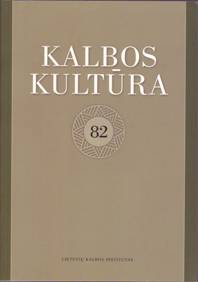Postmodernioji dvikalbystė: tautinės kalbos ir anglų kalba reklamoje
Post-modern bilingualism: national languages and English in advertising
Author(s): Loreta VaicekauskienėSubject(s): Baltic Languages
Published by: Lietuvių Kalbos Institutas
Summary/Abstract: The paper offers an overview of research into advertising and shows that codeswitching and code-mixing with English on the world market is gradually becoming a norm. The pressure is so firm that possible violations of the requirements of official, pure and well-formed language or even changing the understanding of language acceptable for public use do not seem to pose any threat. Nowadays it is becoming more and more difficult to account for the ongoing changes using such concepts of modern discourse as “protection against the domain loss”; rather, reference should be made to the framework of the criticism of post-modern perception of reality that linguistic reality tends to change together with the changing cultural identity. Presently, the identity of a language user should not be related merely with ethnic, territorial or national boundaries:English has become accessible to all and some social groups use it as a resource and as a means of expression. It is such identity of a plurilingual user and the freedom of his/her choice to use as many codes as necessary that can help explain why most domains, including advertising, are becoming mixed. In the texts focusing on language policy and standardising the Lithuanian language such opportunities have never been discussed.
Journal: Bendrinė kalba (iki 2014 metų – Kalbos kultūra)
- Issue Year: 2009
- Issue No: 82
- Page Range: 110-125
- Page Count: 16
- Language: Lithuanian

